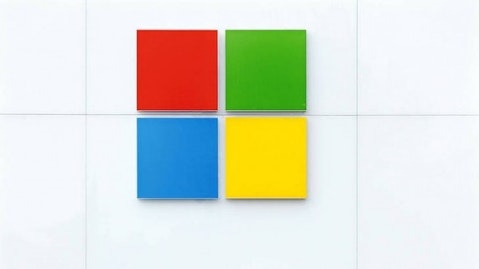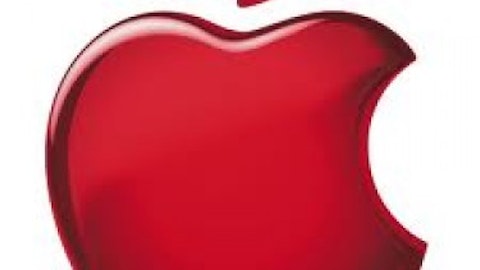It’s been rumored for months, but only recently confirmed: Microsoft Corporation (NASDAQ:MSFT) is bringing back the start button. Its most recent version of Windows has been received poorly, in large part due to the radical changes the company made, including removing the start button.
Some analysts have begun to predict that Google Inc (NASDAQ:GOOG)’s Android would soon replace Windows as the dominant global operating system. As Windows remains a large portion of Microsoft Corporation (NASDAQ:MSFT)’s business, the company would likely prefer that doesn’t happen.
But, despite Microsoft Corporation (NASDAQ:MSFT)’s hopes, bringing back the start button isn’t going to save Windows.
Windows 8: A radical redesign
Minor graphical updates and performance improvements aside, Windows has fundamentally been the same operating system since 1995 — a desktop, familiar icons, the start button, control panel and so forth.
But Microsoft Corporation (NASDAQ:MSFT) opted to break from that trend last year. Windows 8 is designed around the new Metro interface — a tiled start screen optimized for touch. Through one of these tiles, a user can get to the desktop, but even there, things are different (such as the aforementioned loss of the start button).
In addition to bringing this button back, Microsoft Corporation (NASDAQ:MSFT) is also opting to allow users the ability to bypass the Metro interface on startup, booting directly to the desktop.
In theory, this should make Windows 8 more accessible to those users that are turned off by Metro.
PC sales have been falling
Sales of traditional, Windows-based PCs have been falling in recent months. In fact, the first quarter of 2013 saw the largest drop in PC shipments on record. Hewlett-Packard Company (NYSE:HPQ) saw its PC revenue fall by 20% in the last quarter alone.
Some of Microsoft Corporation (NASDAQ:MSFT)’s hardware partners, like Samsung, have blamed Windows 8 for the decline of the traditional PC. In turn, Microsoft has alleged that its OEMs have failed to build the right kinds of computers to take advantage of its new operating system.
Increasingly, these partners are breaking away from Windows in favor of Android. To offset its struggling PC division, HP has shifted to new devices — not all of them Windows-based. The company just put out a Chromebook and launched the Android-powered Slate 7 tablet. More importantly, Hewlett-Packard Company (NYSE:HPQ) is pushing into business services and new servers.
This diversification strategy allowed HP shares to jump after the company’s last earnings report. Although some traders may have thought it intelligent to short HP based on the PC’s decline, that might not be the case after all.






